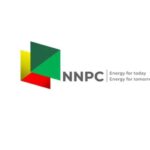The Nigeria National Petroleum Company Limited (NNPCL) owes around $3 billion to fuel traders for imported petrol, three sources told Reuters.
The sources also disclosed that the tumbling naira and rising global fuel prices have increased the subsidy it is paying.
The payment backlog is a blow to the government’s efforts in the economy to shore up its strained finances by curbing costly energy subsidies.
“They are paying, but it’s slow,” one of the sources with knowledge of the matter said. Five sources said that NNPC – the country’s main importer of petrol – was taking more than 130 days to make the payments instead of within 90 days.
Eid-el-Fitr: FG Declares Thursday As Additional Public Holiday
Makinde vows to prosecute immigration personnel who assaulted traffic officers
An NNPC spokesman said the company was “not aware of any such debt nor any financial issues of such magnitude”.
“Our focus remains on sustaining sufficiency in the supply of petroleum products in Nigeria,” the spokesman said.
NNPC’s suppliers, including international traders like Vitol, Mercuria and Gunvor as well as Nigeria-based trading houses, are still supplying fuel, the sources said.
They declined to be named because they are not authorised to speak to the media. The trading firms declined to comment.
But the payment delays underscore the creeping return of fuel subsidies – scrapped in May 2023 – that sap NNPC’s cash for imports and what it can send to President Bola Tinubu’s government.
Nigeria had subsidised fuel for years to keep pump prices affordable, but Tinubu removed them as part of wider reforms, allowing prices to triple. Petrol consumption fell by around 30% as higher prices curbed smuggling to neighbouring countries.
In June, the government capped pump prices at a nationwide average of N617 per litre as Nigerians grappled with punishing inflation.
“It’s hard to overstate the significance of fuel subsidies for the administration,” said Clementine Wallop, director for sub-Saharan Africa at political risk consultancy Horizon Engage.
“It was subsidy removal and exchange rate reform that had investors and lenders initially positive about his administration, and it was their removal Tinubu hoped would give his team the ability to spend in the many other areas that need funding.”
Nigeria is almost wholly reliant on fuel imports due to years of mismanagement and under-investment at state-owned oil refineries.

 Join Daily Trust WhatsApp Community For Quick Access To News and Happenings Around You.
Join Daily Trust WhatsApp Community For Quick Access To News and Happenings Around You.


